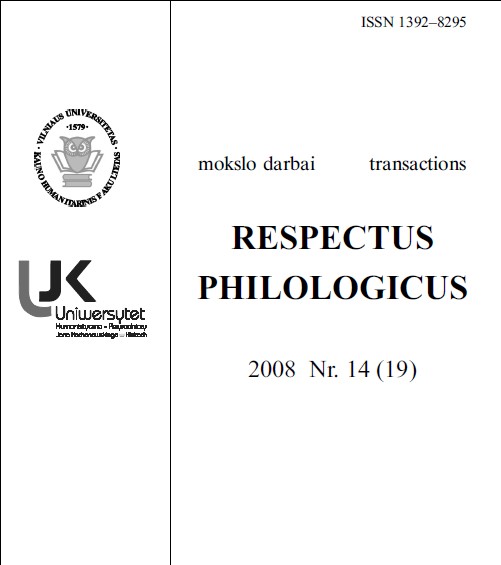ANALITINIAI TEIGINIAI: RACIONALIZMO IR NATŪRALIZMO GINČAS
ANALYTIC STATEMENTS: CONTROVERSY BETWEEN NATURALISM AND RATIONALISM
Author(s): Audronė RimkuteSubject(s): Epistemology, Logic, Methodology and research technology
Published by: Vilniaus Universiteto Leidykla
Keywords: analytic statements; analyticity; radical naturalism; moderate rationalism; Quine; Bonjour;
Summary/Abstract: The article analyzes two contemporary approaches to them: the radical naturalism of Willard van Orman Quine and the moderate rationalism of Laurence Bonjour. On the ground of the naturalistic account of meaning, Quine argues that the concept of analyticity is unintelligible because it does not possess any clear and definable content. Therefore, the distinction of analytic-synthetic statements is meaningless. Bonjour’s moderate rationalism defends the analytic-synthetic distinction on the ground of the concept of synonymy as the sameness of meaning and the idea of a priori justification. The underlying ground of the controversy is the possibility of a priori justification – naturalism denies this possibility while rationalism maintains it as the fundamental precondition of human knowledge and especially of philosophical knowledge. From Quine’s point of view, there is no a priori knowledge because stimulation of sensory receptors is all the evidence that anybody has had to go on in arriving at his picture of the world. Cognitive psychology is the science that answers the question how human beings construct their theories of the world, so it takes the place of epistemology. But this question is not the same as the epistemological one: epistemology asks which one of the human theories and statements is knowledge and how human beings gain knowledge. Scientific theories can be mistaken and knowledge cannot be. Thus, Bonjour’s rationalism gives some insights about the nature of analyticity and its place in knowledge while Quine’s naturalism passes over the real problem.
Journal: Respectus Philologicus
- Issue Year: 2008
- Issue No: 14 (19)
- Page Range: 77-87
- Page Count: 11
- Language: Lithuanian

